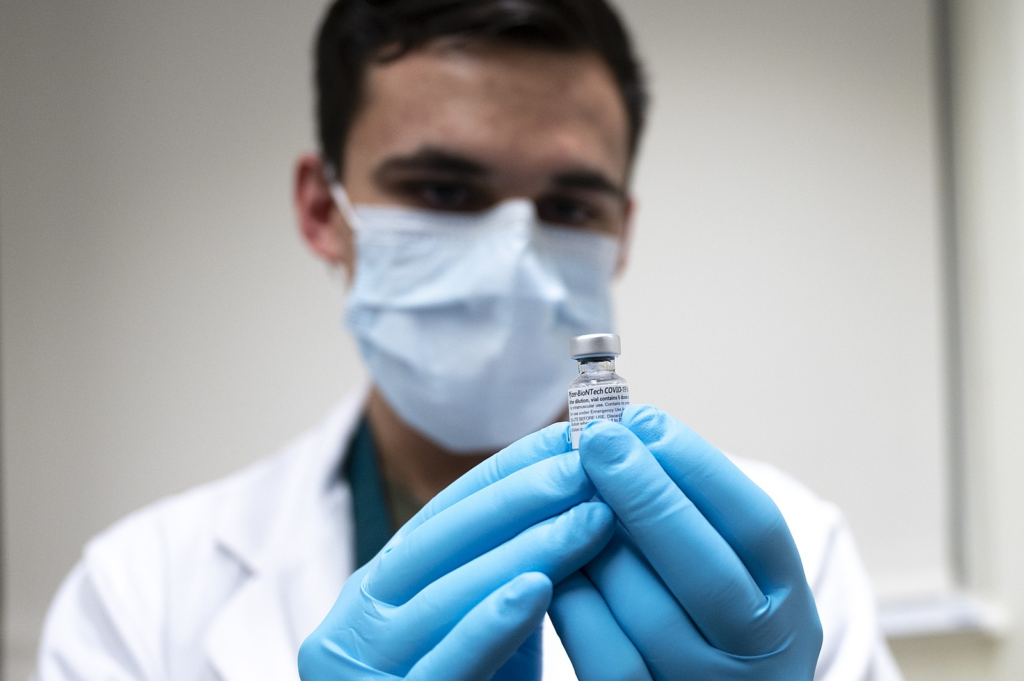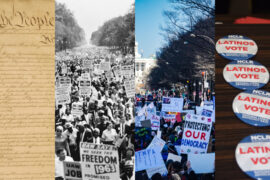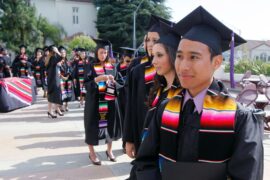
In the nine months since the beginning of the COVID-19 pandemic, Latinos have been amongst the hardest hit populations. Yet recent polling shows that Latinos are less likely to trust a vaccine. In light of Pfizer’s vaccine becoming available for emergency use to medical workers last Friday, Latino leaders are working towards fighting skepticism in their communities.
Building immunity to the coronavirus is more important than ever for Latinos, who have disproportionately been affected by the newest wave. In the past week, new cases of COVID-19 in Latino-heavy areas in the country have been 30% higher than the national rate. Meanwhile, trust in the vaccine wavers. A study conducted in September found that only 34 percent of Latinos trust a vaccine’s safety, and 40 percent trust its effectiveness.
Although more information about the vaccine has been revealed since the study came out, and people of color have been included in early trials across the country, the trust gap continues. Experts say this is in part because of historical examples of Black people and Latinos being used as medical guinea pigs. “I think it’s about just patients feeling like there’s still discrimination in health care, and why would they have confidence in a vaccine when they’ve been neglected historically,” says Raul Garza, president and CEO of an Illinois-based health and wellness center.
To counter this anxiety, Latinos are working to create culturally-specific messaging that their communities will understand from trusted neighbors, friends and community leaders. Another tactic is to have Latinos who are public figures receive the vaccine first. For example, nurse Maritza Beniquez was the first to receive the shot in New Jersey since she works at University Hospital in Newark, located in the hardest hit county of the state.
There’s also a push to get Latinas in particular to understand the importance of the vaccine. Dr. Fatima Rodriguez is an assistant professor at Stanford’s medical school who has been researching COVID-19’s impact on Latino patients. She believes that because Latinas are often leaders of multigenerational households, their perception of the vaccine could influence others in their community. “They can get their kids to take the vaccine, their husbands, other family members that live in these multigenerational households. So we certainly want the head of the household to get vaccinated and then encourage others to do so,” she said.
Health experts say it’s important that the vaccine, when available to the population, be distributed widely. This is because immunity will be achieved only if 60-70% of the population either gets the COVID-19 infection or takes the vaccine, according to the European Centre for Disease Prevention and Control (ECDC).
The urgency to fight the mistrust stems from a year that’s been especially dire for Latinos. Latinos have been hospitalized due to COVID-19 almost five times more than white people and a CDC analysis found that between May and August, about one fourth of people who died of COVID-19 were Latino. One reason is due to the reality Latinos face in the workforce— over half of Latinos hold a job that must be done in person, yet 25% of Latinos are uninsured.
Through public education campaigns that include Spanish-lanuage messaging, hyper-local organizing and public demonstrations of high-profile leaders, Latino organizers continue to build trust in the vaccine. The hope is to drive home the importance of this moment as vaccine roll-out continues.




